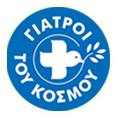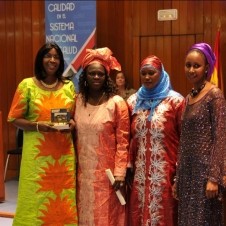Each day, 6 000 girls from 4 to 10 years are mutilated, according to reports from Unicef, although this practice varies greatly from country to country. Even though a gradual ban began since the late 80’s in many of these countries, today it is still a widespread practice that poses a high risk for the physical and mental health of girls and women who suffer it.
The amputation causes women to see their sexuality both broken and distorted. It is a clear violation of basic human rights. However, in countries that follow this practice, it is considered to be an inherent part of their culture and traditions, which must be respected.
The presence of African families from different cultures in Spain has highlighted the need to develop strategies for its prevention. Many will remember the court decision in Alkanith for a couple of Cambodians who mutilated the genitals of their daughter. On the flipside side of the coin is Aisatou, Fatima, Isatou and Bai: women from Africa, who work as mediators in a program for the prevention of female genital mutilation, which we (MDM Spain) support in these areas: Aragon, Catalonia and Navarra (Spain).
Women mediators from Africa is ‘key’ for access to families and to gradually refute the myths that have been created through the tradition of amputation. First of all, their job is important so as to prevent amputations to daughters of families who travel while they remain in their home countries.
Amputation is considered effective for their daughters and they perceive it as a link to their social and cultural identity. Society tells them: "your daughters will not marry", "will not be good wives and will have no future" … The weight of social pressure and confrontation with their families in their home countries continues to exist.
To address these situations, women mediators bind each family with an agreement that when they travel to their country, they must protect their daughters and talk to their relatives about the issue.
Second, women who have seen the implications of genital mutilation on the health of mothers begin to doubt the need to do so to their daughters. Finally, with the help of stakeholders in the program, the dissociation of religion from female genital mutilation (FGM) is promoted, as the Qur’an does not contain any reference to it.
This pioneering project in Spain deserves recognition from the Ministry of Health and through this recognition of the work of these brave and courageous women who say "enough is enough" and help women change something that should not have existed in the first place.
Our work in the prevention of female genital mutilation (FGM)
Doctors of the World (Spain) have been working on this issue since 2004, when we started our work in Catalonia and Aragon. In 2008 we continued with the promotion of the program in Navarra. We consider it worthwhile to work on information, organization and awareness, both in communities directly affected, and health professionals who work with immigrants.
From this perspective, we base our work on information and awareness of the African population, located in Navarre, Aragon and in Catalonia, as well as in the organization of people working in health and education. These movements help to detect cases of female genital mutilation (FGM) and possible complications in the health and psychology derived from this practice. The program also gives us the ability to detect cases of young girls who may face the risk of falling victim to this practice.

